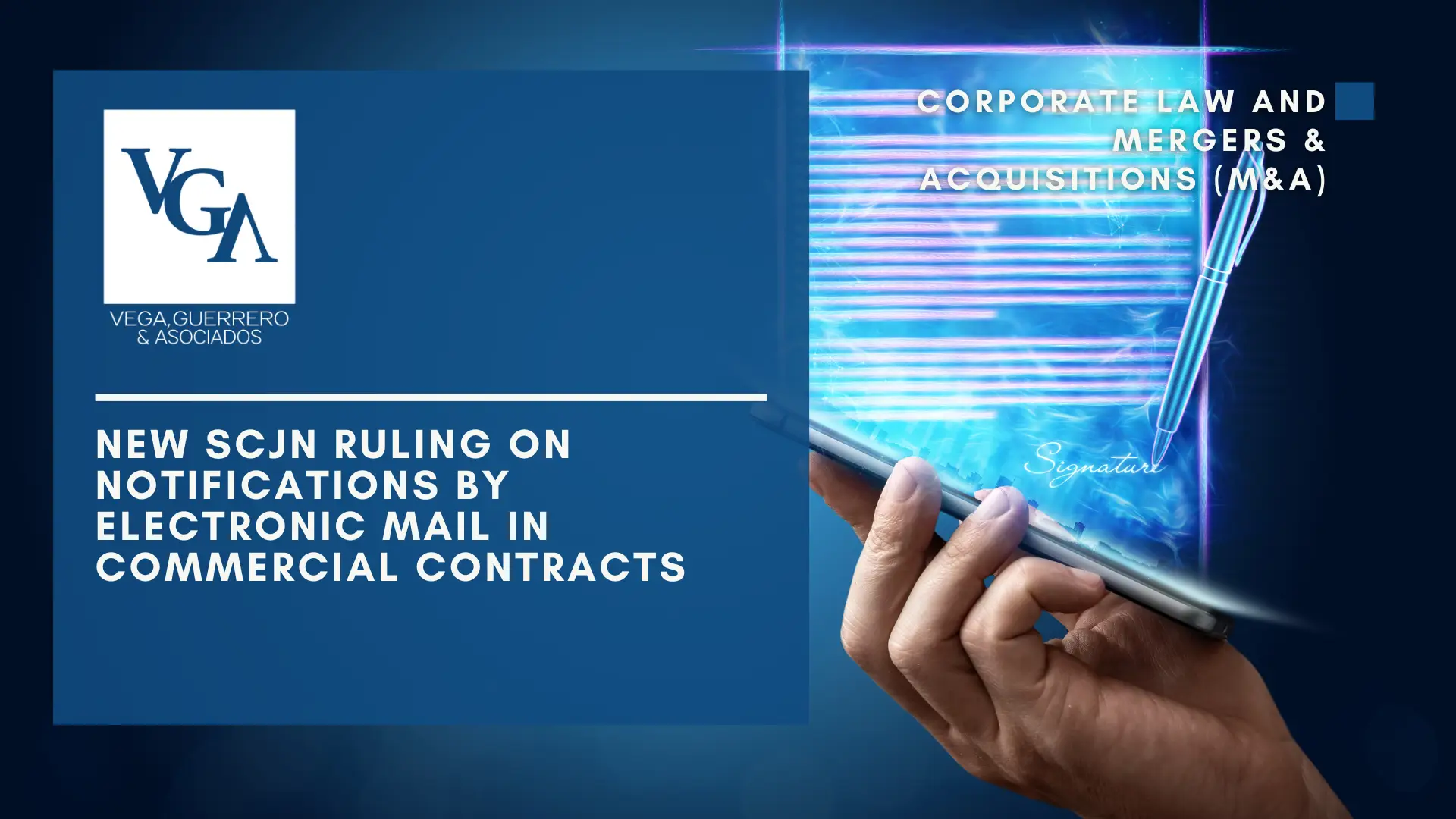Published on February 14, 2025
The Supreme Court of Justice of the Nation (SCJN) has determined that, in the absence of a specific regulation in the Code of Commerce and the Federal Code of Civil Procedures, notifications by electronic mail in commercial matters are governed by local procedural rules. In this case, the Code of Civil Procedures of the State of Sonora was applied, establishing that electronic notifications take effect on the date the mail was sent, regardless of when the addressee consults it.
Implications of the New Standard
Determination of the Time of Notification
In Amparo Directo 280/2022, the First Collegiate Court of the Fifteenth Circuit ruled that, in the absence of specific regulations regarding the time in which electronic notifications in commercial matters take effect, local procedural law must be applied in a supplementary manner. This criterion has key implications for the interpretation and application of procedural deadlines in commercial contracts:
- Specifies how time periods are computed when e-mail is used as a means of contractual notification.
- It establishes that the date the mail is sent is the date that determines the start of the deadlines, regardless of when it is read by the addressee.
- It creates uncertainty for parties who rely on email for legal and contractual communications.
Impact on the drafting and management of commercial contracts.
Drafting of Notification Clauses
It is essential to define in contracts the time at which notices are deemed to be received. This may include an express agreement between the parties as to whether the notice takes effect upon sending or reading.
Deadline Management
Companies and their legal teams should consider that contractual deadlines subject to email notification could start to run from the time of sending, which could impact the enforcement of contractual obligations and rights.
Prevention of Procedural Risks
In commercial litigation, this criterion may affect the validity of procedural deadlines if the time at which a notice was sent is not taken into account. To mitigate risks, it is advisable that companies establish mechanisms to confirm the reading or receipt of important mail.
Strategies for Companies and Legal Advisors
- Contract review and adjustment: If e-mail notifications are a valid means in contracts, it is advisable to clearly establish when they are considered to be received.
- Monitoring of local provisions: In the absence of federal regulation, judges could supplementary apply different state procedural codes, which could generate uncertainty in the interpretation of contracts.
- Implementation of internal controls: It is recommended that internal procedures be established to follow up on electronic notifications in key contracts, ensuring the security and validity of contractual communications.
Conclusion
This new criterion of the SCJN provides clarity on the validity of electronic notifications in commercial matters. However, it also highlights the importance of establishing in the contracts detailed clauses on the moment in which the notifications take effect, in order to avoid risks and interpretative conflicts.
If your company uses e-mail as a means of notification in contracts, it is advisable to review and update its clauses to minimize legal risks and ensure effective compliance with contractual terms.




